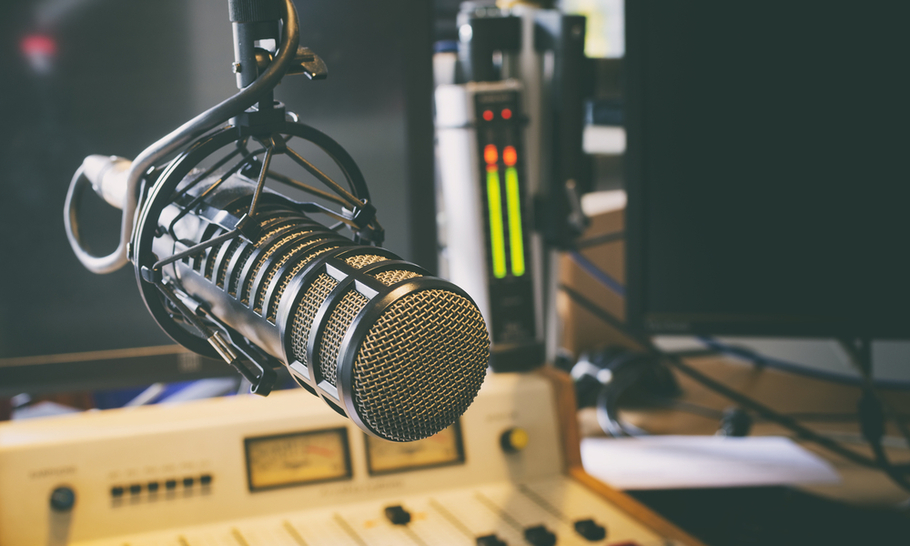British radio has never been in better shape

BBC Radio has often featured in its own news bulletins recently – and not for good reasons. In the past year alone, Radio 4 has suffered budget cuts, the loss of nearly a million listeners, and criticisms for being too old and posh. This month, one of its previous controllers warned that it is on the verge of a ‘nervous breakdown’. Meanwhile, Radio 2 has lost two of its most popular DJs, Chris Evans and Simon Mayo, to commercial platforms – and Radio 5’s Danny Baker was fired for a controversial tweet.
Yet British radio is doing very well. According to the latest data from Radio Joint Audio Research (RAJAR), 89% of the population continues to tune in each week, and over half now do so via digital platforms. The BBC’s much-flaunted new radio app, BBC Sounds, offers 80,000 hours of audio content. People are turning on and tuning in like never before, which is probably why, according to last year’s Advertising Association/WARC Expenditure Report, radio is the UK’s fastest growing advertising medium.
But it’s not just the advertisers who want your ear – so too do politicians and the media. After all, when radio first took off in the 1930s, Hitler’s Propaganda Minister saw its potential and ordered the mass production of affordable radios, thereby bringing the voice of the Nazis into every home. At the same time, President Roosevelt’s ‘Fireside Chats’ soothed Americans through the Great Depression. Today, as politicians shout at each other on TV and Twitter, Nigel Farage had the nous to establish his own radio show. If he didn’t already have a dedicated band of listeners, he does now.
And he’s not the only one. Jacob Rees-Mogg, Nick Clegg, Boris Johnson, Alastair Campbell and Alex Salmond have all hosted call-in shows on LBC, whilst former Labour leader Ed Miliband now hosts his own weekly podcast. The latest RAJAR figures reveal that LBC is enjoying its highest ever listening figures and, whilst Today has lost listeners in recent years, it still reaches a weekly audience of over 7 million people. That’s greater than Question Time and on par with Line of Duty. It continues to attract illustrious guest editors, from A-list celebrities to royals, and the 8.10 slot remains the prime PR opportunity for politicians.
And don’t forget podcasts. According to Ofcom, these downloadable dinner-table-style discussions have almost doubled in popularity over the past five years. As well as Miliband’s, there are podcasts hosted by public figures ranging from journalists to priests, academics to former Special Advisors. There’s the BBC’s award-winning Brexitcast, Agitpod with Owen Jones and Ellie Mae O’Hagan, Political Thinking with Nick Robinson, Unfiltered with James O’Brien, David Runciman’s Talking Politics, The Political Party with Matt Forde, Remainiacs – The Brexit Podcast and UnHerd’s podcasts run by Ayesha Hazarika and Giles Fraser. Not to mention the fact that The Spectator, The Economist, The Times, The Telegraph, The Guardian, New Statesman – and most other providers of the written word – now offer the spoken word too in podcast form.
What explains this rebirth of political radio – are Twitter and TV not enough? For one thing, it must have something to do with the fact that politicos love the sound of their own voice. Talk shows, in particular, are quite literally echo chambers, affording hosts and listeners alike the chance to broadcast their worldview. LBC’s James O’Brien has written a book about this art form and, perhaps unsurprisingly, it is called How to Be Right. Radio might also appeal to politicos because their industry – often referred to as ‘showbusiness for ugly people’ – is perfectly suited for radio. I have lost count of the number of politicians that panic on camera only then to speak with calm conviction on the radio. Miliband’s public image was undone by his bacon sandwich moment, and yet he is approaching the 90th episode of his podcast. He has a face for radio. One wonders why Theresa May hasn’t used it more.
Of course, we don’t have to tune in. But with all of this content readily available at our fingertips, it is hard not to. Perhaps more importantly, radio differs from other media forms in that it filters out the white noise that visual media formats do not. Radio doesn’t overload the five senses – it speaks only and directly to your ears. As Chris Evans put it: ‘radio is a voice, a conversation, a debate, a point of view, a thought, an annoyance, a delight, a song, information, revelation, confirmation’.
Ultimately, radio has proven to be both popular and lucrative in the 21st century, and political radio will always serve to attract both the talkative and the camera-shy. Of course, radio’s survival is a good thing for democracy because it has kept alive the dying art of listening. But we should also remember how pied pipers have used it in the past – and not lend them our ears too freely.





